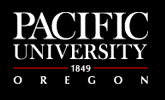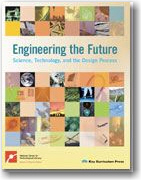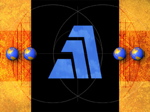 |
 |
 |
 |
  |
 |
 |
 |
 |
| Email Camille |
 |
|
|
| PROJECTS: (Here are a few –) 1. Capacitor-Aided System for Teaching and Learning Electricity (CASTLE) is a high school electricity curriculum that leads students from initial naive ideas to an increasingly expert understanding of electrical phenomena. A unique sequence of self-guided experiments uses large capacitors and transient bulb lighting to help students confront their misconceptions, grasp the physics of current propulsion and build intuitive explanatory models. The core experiments stimulate students to model mobile charge as a compressible fluid and electric potential as "electric pressure" in the fluid. They learn that a pressure difference is what makes charge move through a resistor. The advanced experiments examine semiconductors and reveal two kinds of charge and distant action, which suggests modeling fields as pressure raising/lowering "halos" around ± charges. Connections between the electron, the atom and mobile charge in circuits are also explored. CASTLE gives priority to development of qualitative reasoning skills in a "Predict/Observe/Explain" instructional model. No prior knowledge of electricity is required, making the curriculum accessible to students in all levels of high school physics. The first two Sections, in fact, are appropriate for middle school through 9th grade Physical Science classes. RESOURCES: The entire Student Manual and Teacher Resource Guide can be downloaded in PDF from PASCO scientific: (PASCO website). For updates or questions, email Camille Wainwright (wainwric@pacificu.edu). Bona fide teachers may obtain either the pdf or MS Word versions directly from me. The following PowerPoint presentations are demonstrations which provide a focus for classroom discussion, authored by Tom Senior of New Trier HS. Section 4: Battery Flip, optional demonstration Section 4: Homework Question #2 Section 5.2 Section 5.7 Section 5.9 2. NCATE Accreditation As the Coordinator for NCATE accreditiation at Pacific University's College of Education, I (and the entire faculty) am focused on preparation for our site visit in March, 2008. NCATE is the profession's mechanism to help establish high quality teacher preparation through a performance-based system of assessment of programs. (NCATE national website) (Pacific University College of Education NCATE site) 3. Engineering the Future
Engineering the Future: Science, Technology and the Design Process (ETF) is a year-long curriculum developed by the
Boston Museum of Science for a science/technology/engineering course
which prepares high school
students to meet state technology standards and benchmarks.
Wainwright was instrumental in the development of the electricity
components of the course and evaluation of curriculum effectiveness.
The curriculum is now available from Key Curriculum Press (ETF). 4. Shedding Light on Science Along with three other science education faculty from around the country, I served as an author of an 8-week video workshop series produced by the Harvard-Smithsonian Center for Astrophysics (and even served as on-camera 'talent' in Workshop 4). The servies – Shedding Light on Science – was designed as a professional development opportunity for K-5 grade teachers. Using light as a theme, the workshop explores topics in physics, chemistry, biology and Earth and space science. The workshops show how light is a common thread that runs through many areas of science and makes connections to real world phenomena as participants explore the behavior of light, the transformation of energy, and the role of light in plant production of food, weather and the seasons. (website) |
College of Education Home Page http://www.ed.pacificu.edu/
Last Updated 11/1/07
Copyright Dr. Camille L. Wainwright © all rights reserved, all educational uses encouraged
Direct comments or questions to wainwric@pacificu.edu
Last Updated 11/1/07
Copyright Dr. Camille L. Wainwright © all rights reserved, all educational uses encouraged
Direct comments or questions to wainwric@pacificu.edu


